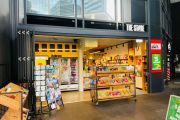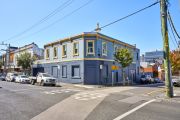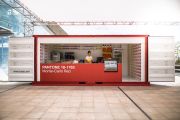
Melbourne businesses say online sales and government help is key to surviving stage-four lockdown
Many small businesses in Melbourne that are being forced to close their doors from 11:59pm on Wednesday night as part of the new state four restrictions are hoping that online sales and government subsidies will keep them afloat until the lockdown ends.
Under the changes, non-essential businesses, including large retailers such as Myer, Officeworks and JB Hi-Fi, will be forced to move to online sales only.
Small business operators contacted by Commercial Real Estate said being forced back to an online-only sales would have a huge impact on their bottom line.
“I’d say we’re going to take a 50 per cent nosedive but at the same time JobKeeper and the government subsidies will help keep us going,” said Lyndsey Spark, owner of clothing store Somebuddy Loves You, in Smith Street, Fitzroy.
The business, which has been operating for 17 years, had been building up its online presence since the first stages of the pandemic but remained an overwhelmingly bricks-and-mortar operation.
“Our online component has jumped. It was around 10 per cent of turnover, now it’s jumped by about 50 per cent,” Ms Spark said.
Being able to access JobKeeper was one of the key reasons Somebuddy Loves You had been able to survive the shutdowns so far, and Ms Spark was hopeful that the federal government would continue paying the current rate of JobKeeper for Melbourne businesses.
“The longer JobKeeper can go on the longer I can keep staff on,” she said.
She also said that the state government’s business grants had gone a long way to helping ride out the storm.
“I’m lucky because I’m small, the amount they gave me is a boost. I know for a lot of bigger businesses $10,000 won’t seem like much.”
Despite the hit to turnover, Ms Spark said she accepted the necessity of the stricter regulations.
“Look, I think everyone has done the best they can. Now I’m glad we’ve gone to stage four because I just want it to be over.
“Let’s just lock down and get it done and get back to normal life, whatever that may be. I think [Premier] Daniel Andrews has done the best he can given the situation.”
Over at Vinyl Space, a record store on Johnston Street, Collingwood, owner Mick Smajdor said business would also take a dive.
“We basically have to close the shop, which probably represents about 40 to 50 per cent of my turnover, so basically it’s a massive part of the business,” Mr Smajdor said.
The shop had remained open during most of the first lockdown, but has now closed in line with government advice.
“We’re lucky though that we do have a fairly strong online presence through eBay and Discogs,” he said.
But the downside was they hadn’t been able to qualify for JobKeeper, owing to an increase in revenue immediately leading up to COVID-19.
“Unfortunately, because of the way the business grew quite a lot in the last 12-month period specifically, because of the online growth we’ve had, we’re not able to get the government support [like JobKeeper],” Mr Smajdor said.
He was hopeful the federal government might alter the qualification requirements for Melbourne businesses caught up in the second wave of lockdowns.
Regional Victoria to be hit too
While Melbourne is about to enter stage four restrictions, regional Victoria will be subject to stage three restrictions, meaning residents will only be able to leave the home for four essential reasons.
Small business owner and Victorian state representative of the Small Business Association of Australia Anthony Cerantonio said the restrictions in Melbourne had been having a severe impact on his Great Ocean Road Resort business in the town of Anglesea.
“We’re at a standstill at the moment from a business point of view,” said Mr Cerantonio, who also operates a forensic accounting and finance-broking business.
“It’s been a big change because we relied heavily on overseas trade and that’s basically come to a dead end and now we’re relying on the local trade, but now with Melbourne being shut off it’s back to zero.”
He’s also delayed the opening of a new pancake business in town due to the pandemic restrictions.
“The issue is going to be what happens when JobKeeper and the bonus stops and the problem we’ve got at the moment is that although the government has said you can borrow up to a million dollars [under the COVID SME guarantee scheme] where they were guaranteeing it [but] the problem here is that the banks aren’t lending,” he said.
“Banks aren’t being lenient by taking into account the guarantee by the government.”
Despite the government guarantee, lenders were still assessing loan applications using the same methodology as they had pre-pandemic, meaning cash flow was taken into consideration.
This meant many of Mr Cerantonio’s clients had been knocked back on their loan applications due to assumptions about reduced cash flow during COVID-19.
“I’ve got manufacturing clients who want to expand because they realise now is the time to do it [with low interest rates in place]. They don’t want grants, they just want the ability to borrow on a business plan and convince banks that their businesses are reliable,” he said.










